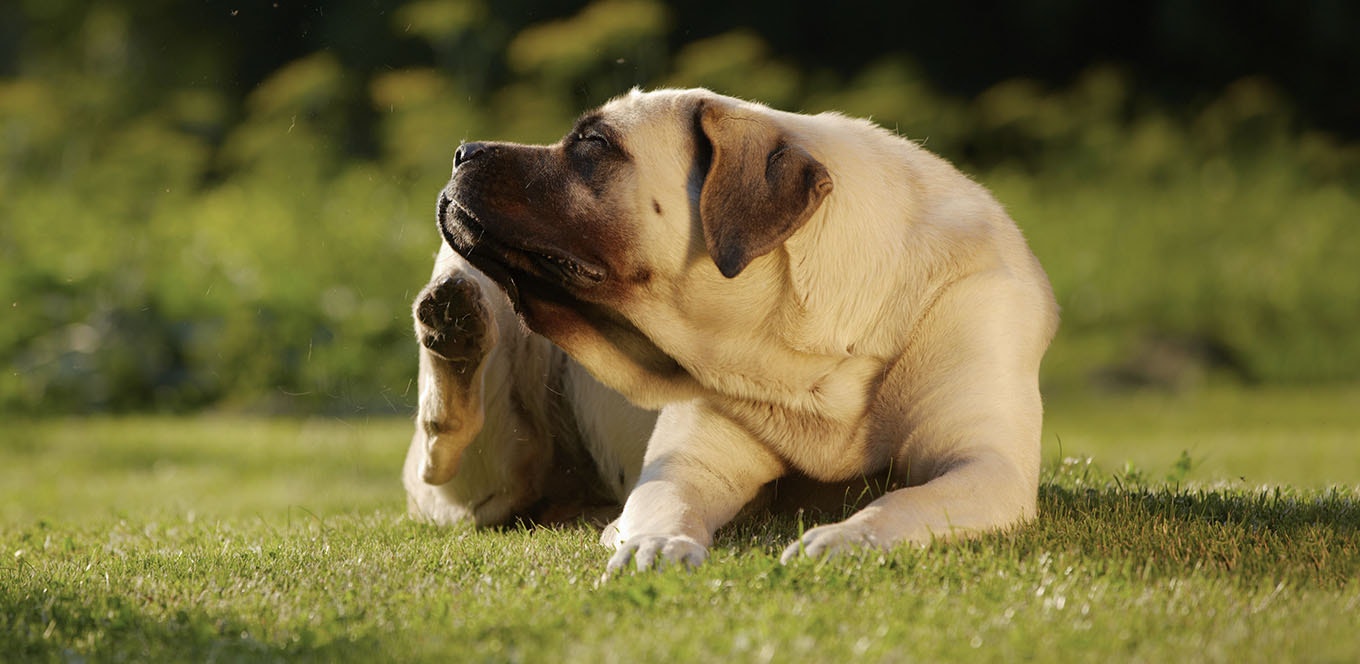
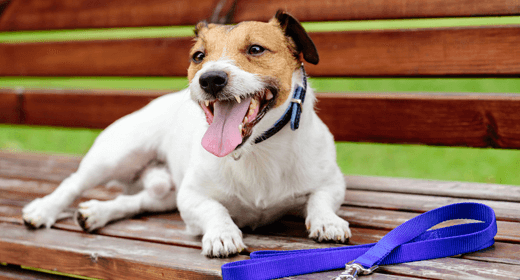
We all adore the sight of our furry friends panting, tongues lolling out in playful exhaustion after a spirited game of fetch or on a warm, sunny afternoon. But have you ever stopped to wonder about the deeper meaning behind this seemingly simple act? What does it tell us about our dog's health and well-being?
While we may find dog panting endearing, it serves a far more crucial purpose than just a cute quirk. Panting is an essential element of canine physiology, playing a vital role in regulating body temperature and communicating emotional states. Knowing the different types of dog panting and their underlying causes can be crucial in providing the best care for our beloved companions.
Dogs pant to regulate their body temperature, a mechanism similar to how humans sweat. While some panting is normal, excessive or unusual panting can be a sign of an underlying health issue.
Understanding why your dog pants is crucial for their health and well-being. While we've previously discussed how panting is their primary cooling mechanism, there's more to the story than just regulating body temperature.
Seeing your beloved furry friend struggling to breathe can be a harrowing experience. But before jumping to conclusions, it's important to stay calm and assess the situation. Here's what you can do when your dog is panting heavily:
If any of these factors are present, the panting is likely a normal physiological response to regulate their body temperature or manage stress. In this case, simply provide your dog with a cool, quiet space, offer fresh water, and allow them to rest.
Pay close attention to any deviations from their normal breathing patterns. Excessive panting in dogs, especially at rest or in a cool environment, may indicate an underlying medical condition and warrants further investigation.
These initial steps can help alleviate panting caused by heat or stress.
While dogs naturally pant for various reasons, like regulating their body temperature or expressing excitement, excessive or unusual panting can be a sign of an underlying health issue. Knowing when to seek veterinary attention is crucial to ensure your furry friend's well-being.
Here's when you should be concerned about your dog's panting:
Panting is a natural and essential part of a dog's physiology, but it's crucial to differentiate between normal panting and signs of distress. By understanding the reasons behind your dog's panting and knowing when to seek help, you can ensure they live a happy, healthy life.
Dogs pant primarily to regulate their body temperature. Since they can't sweat through their skin like humans, they release heat by panting, which involves rapid breathing that helps to cool their body.
If your dog is breathing fast while resting, it could be a sign of distress or an underlying health issue. Normal panting is usually seen after exercise or in hot weather, but fast breathing at rest might indicate a problem and should be checked by a vet.
Concern arises when panting is excessive, continuous, or happens during rest. Look for accompanying signs like lethargy, reluctance to move or eat, and changes in gum colour. In such cases, it's best to consult a veterinarian.
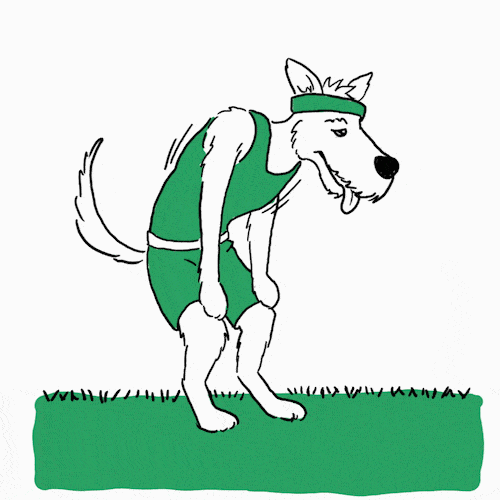
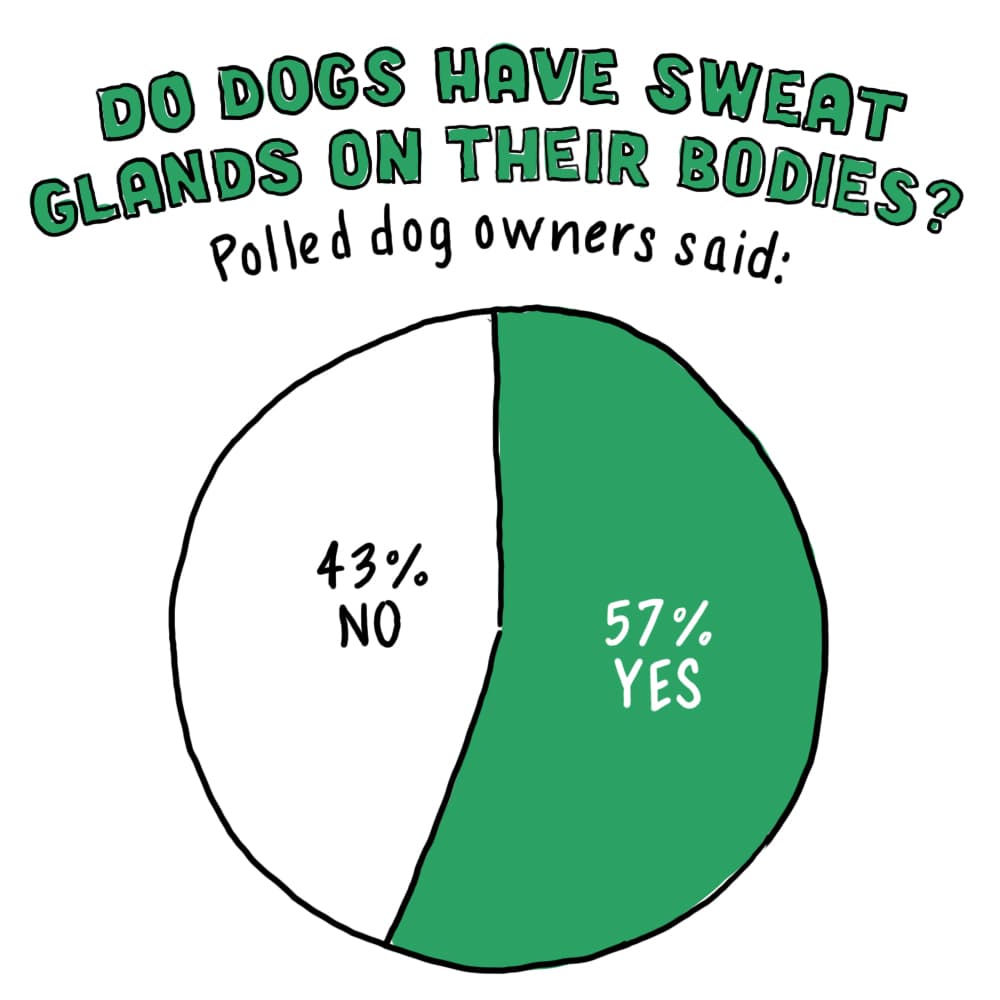
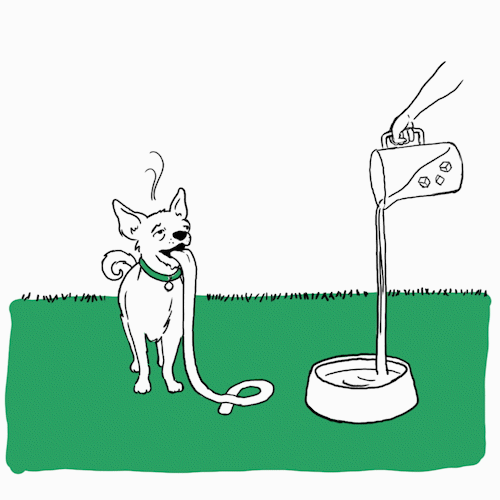

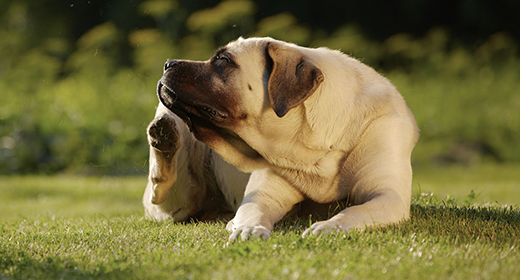
Is your dog always scratching, chewing, itching, or licking itself? Nibbling on its paws like they've been smeared with peanut butter? Although it may appear adorable at first, these are all indications that your dog is allergic.
Dog allergies are very common, and they are one of the primary causes of veterinary visits. Usually, their skin and ears are the most affected areas. Just as they are for humans, environmental and seasonal allergies can cause some discomfort and be an issue for dogs. While allergies in people tend to improve, allergies in dogs often worsen with age.
But how can you tell whether your dog is allergic to something and what's causing it? Unfortunately, correctly diagnosing these symptoms as allergies is not really simple. Your dog can't tell you what's wrong. So, it's up to you, the pet parent, to spot the signs.
The human animal isn’t the only one affected by allergies. Like you, your adult dog can suffer from allergic reactions to any number of things—in the air, on his skin, and in his food. Allergies must be diagnosed and treated by your veterinarian, but first, you must know what to look for.
Therefore, to relieve your furball from all the discomfort caused by allergies, here are some dog allergy symptoms you should watch out for:
In dogs, there are many kinds of allergies. They are:
Environmental allergens such as mold, dust, and pollen can cause severe allergies in dogs, also known as atopic dermatitis. They are triggered by elements found in your home or backyard, or wherever else your dog spends time. Dogs either ingest these allergens like pollen, or they get absorbed into their skin when they come into contact with them. Its ears and paws are the most affected regions; however, it can also affect the muzzle, wrists, ankles, eyes, underarms, crotch, and in between the toes.
An allergic reaction caused by flea bites is one of the most common dog allergies. Plus, flea saliva is also thought to be an allergen in dogs, causing extreme itching. Your dog's skin may become inflamed, red, and scabbed as a result of this, especially near the base of the tail.
Itchy skin in dogs is caused by sensitivities and food allergies. Allergenic protein sources such as beef (34%), dairy products (17%), and chicken (15%) can cause severe food allergies. However, dogs tend to develop a food allergy at any time in their lives, regardless of whether they had previously consumed any type of food from any brands.
Inhalant allergies in dogs are caused by the same common allergens that affect you—dust, grass, trees, mold, pollen, ragweed, etc. They can be seasonal or persistent and, while some breeds (especially short-snouted breeds) might experience the same sniffly, sneezy symptoms you might suffer, skin reactions are most common. Inhalant allergies often can be treated with the same medications you take, but please don’t treat your dog’s allergies without veterinary supervision.
Allergies can vary from dog to dog, so it is important that you work with your vet to make sure your dog gets the best possible treatment. You’ll both be happier for it.
Excessive itching affects the majority of dogs at some stage in their life. A dog with pruritus will bite, scratch, or lick its skin excessively. Itching is referred to as pruritus in medical terms and is one of the most common dog allergy symptoms. It is also a primary factor why dog owners seek veterinarian care.
If your dog licks its skin frequently or incessantly, especially its feet, it's a sign of allergies. The condition could be caused by irritants present in your home or while you go out for walks with your dog. However, it could also be a sign of your furball’s food allergies.
Feet chewing is another prevalent dog allergic reaction. Your dog chews its feet because of an allergy to grass or other environmental pollutants like pollen or dust mites. Inflammation and irritation occur when an allergen comes in touch with its skin. As a result, the skin in the affected area becomes unbearable, and the dog begins to gnaw.
Your dog may have an allergy if you observe it itching a lot or if you notice redness on its skin. These allergic reactions are common in all sorts of dog allergies. If they are the only symptoms you're observing in your dog, you can wait a day or two before making an appointment with your vet.
It can take a little practice to figure out different ways to help alleviate your dog's allergy issues. One effective method is to frequently bathe your dog with hypoallergenic shampoos. This will help remove allergens such as grass or pollen from your dog's body.
Flea control is also necessary to reduce allergy symptoms in a flea-allergic dog. Fleas must be inevitably treated in a dog's environment as well. Vacuum properly to eliminate the eggs and larvae, then discard the vacuum bag. Insecticides can be used both inside and outside your home to keep fleas at bay. In addition to that, hypoallergenic diets make for great dog allergy remedies. These diets contain fewer ingredients with a unique protein source, or they are processed in a specific way to reduce allergic reactions. Consult your vet for advice on the best diet for your pet. But remember that during the trial period, flavored drugs, treats, and human meals must be avoided.
The English Bulldog is a short-haired breed that sheds moderately. Although it sheds hair all year, that isn’t the only allergy issue. These dogs drool a lot, and as the saliva dries and releases proteins into the air, it might induce an allergic reaction in them.
An activated immune system in American bulldogs can cause allergies. If your dog has signs like itchy skin, redness, or licking its paws, you know that your dog is allergic.
The most prevalent dog allergies in Bichon Frises are contact allergies that develop skin problems as well as food allergies. They are also allergic to flea bites and allergens in the air, such as flowers, grass, dust, and trees.
These dogs are also susceptible to contact allergies. They are allergic reactions to objects they come into contact with, including houseplants, cleaning detergents, and even some dog shampoos. Symptoms are more likely to be seen on the skin, so look for redness, flakiness, or a rash in the paws, belly folds, and ears.
Keep an eye out for food allergies and environmental sensitivities that damage their skin. Boxers are especially sensitive to dog food that contains a lot of grains, such as wheat, or corn. Allergies from pollen, trees, dust, and weeds, can affect them at any time of year.
Mold spores are everywhere around us. When inhaled by your dog, it can cause labored breathing, wheezing, and even coughing. Dog allergies are also trigged by eating or living in a moldy home. Excessive chewing, scratching, and dry or scaly skin are some of its common symptoms.
When your dog's oil glands overproduce an oil called sebum, dandruff develops. This oil helps moisturize your adorable pup's skin and adds to its overall wellness. But, when the sebaceous glands generate too much oil, an imbalance occurs, resulting in pet dander.
When fleas feed on your dog, they inject their saliva into your dog’s skin. This saliva can cause an inflammatory reaction in your dog, causing it to excessively itch its skin.
Dust mite allergies are caused by small spider-like insects that reside in houses and consume skin dander.
Unfortunately, dog allergies are incurable and unavoidable. However, you can do things to help them manage their symptoms and suffering. To begin, you must first determine the root reason, which could be flea-related, seasonal, food-related, or something else entirely. Then, you can help your dog avoid these allergies. Keep an eye out for itches and treat them immediately to avoid irritated, infected skin and ears.
You can protect your dog from allergies by avoiding the allergens. Or else, you should regularly clean the air and other surfaces in your home. Additionally, bathing your dog with medicated shampoos for dogs with allergies can help alleviate the symptoms.
The most common dog allergies are:
Dog allergy remedies can be quite beneficial for their skin. Some of them include:
Allergies in dogs are almost always incurable. However, with the help of your veterinarian and a little patience, you can come up with a treatment and management plan that will keep your dog healthy and symptom-free.
